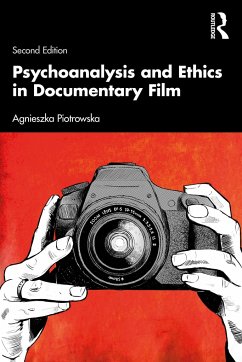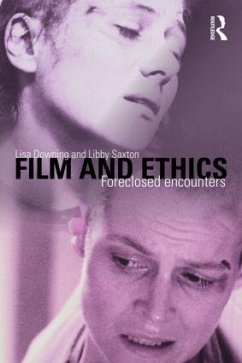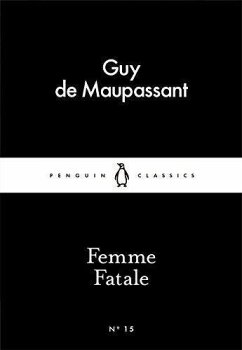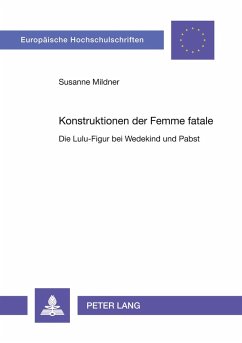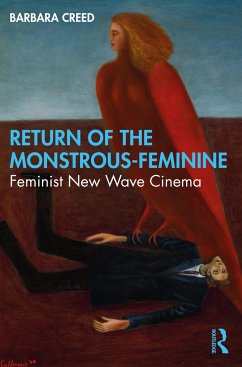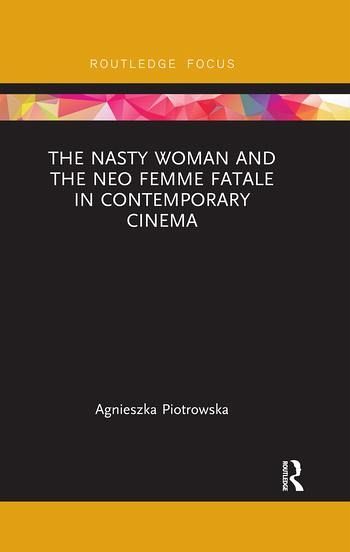
The Nasty Woman and The Neo Femme Fatale in Contemporary Cinema
Versandkostenfrei!
Versandfertig in 6-10 Tagen
24,99 €
inkl. MwSt.
Weitere Ausgaben:

PAYBACK Punkte
12 °P sammeln!
The Nasty Woman and the Neo Femme Fatale in Contemporary Cinema puts forward the theoretical notion of the 'nasty woman' as a means of examining female protagonists in contemporary culture and cinema, particularly films directed by women. The phrase is taken from an insult thrown at Hillary Clinton during the 2016 Presidential election debates and reclaimed by the feminists worldwide. The volume also draws from the figure of the femme fatale in film noir.Piotrowska presents 'the nasty woman' across cultural and mythical landscape as a figure fighting against the entitlement of the patriarchy. ...
The Nasty Woman and the Neo Femme Fatale in Contemporary Cinema puts forward the theoretical notion of the 'nasty woman' as a means of examining female protagonists in contemporary culture and cinema, particularly films directed by women. The phrase is taken from an insult thrown at Hillary Clinton during the 2016 Presidential election debates and reclaimed by the feminists worldwide. The volume also draws from the figure of the femme fatale in film noir.
Piotrowska presents 'the nasty woman' across cultural and mythical landscape as a figure fighting against the entitlement of the patriarchy. The writer argues that in films such as Zero Dark Thirty, Red Road, Stories We Tell, and even Gone Girl the 'nastiness' of female characters creates a new space for reflection on contemporary society and its struggles against patriarchal systems. The nasty woman or neo femme fatale is a figure who disrupts stable situations and norms; she is pro-active and self-determining, and at times unafraid to use dubious means to achieve her goals. She is often single, but when married she subverts and undermines the fundamental principles of this patriarchal institution.
For students and researchers in Cultural Studies, Women's, Gender and Sexuality Studies, Film Studies and Psychoanalysis in Film Studies, The Nasty Woman and the Neo Femme Fatale in Contemporary Cinema offers an original way of thinking about female creativity and subjectivity. It is also a proud celebration of feminist and female authorship in contemporary Hollywood.
Piotrowska presents 'the nasty woman' across cultural and mythical landscape as a figure fighting against the entitlement of the patriarchy. The writer argues that in films such as Zero Dark Thirty, Red Road, Stories We Tell, and even Gone Girl the 'nastiness' of female characters creates a new space for reflection on contemporary society and its struggles against patriarchal systems. The nasty woman or neo femme fatale is a figure who disrupts stable situations and norms; she is pro-active and self-determining, and at times unafraid to use dubious means to achieve her goals. She is often single, but when married she subverts and undermines the fundamental principles of this patriarchal institution.
For students and researchers in Cultural Studies, Women's, Gender and Sexuality Studies, Film Studies and Psychoanalysis in Film Studies, The Nasty Woman and the Neo Femme Fatale in Contemporary Cinema offers an original way of thinking about female creativity and subjectivity. It is also a proud celebration of feminist and female authorship in contemporary Hollywood.





